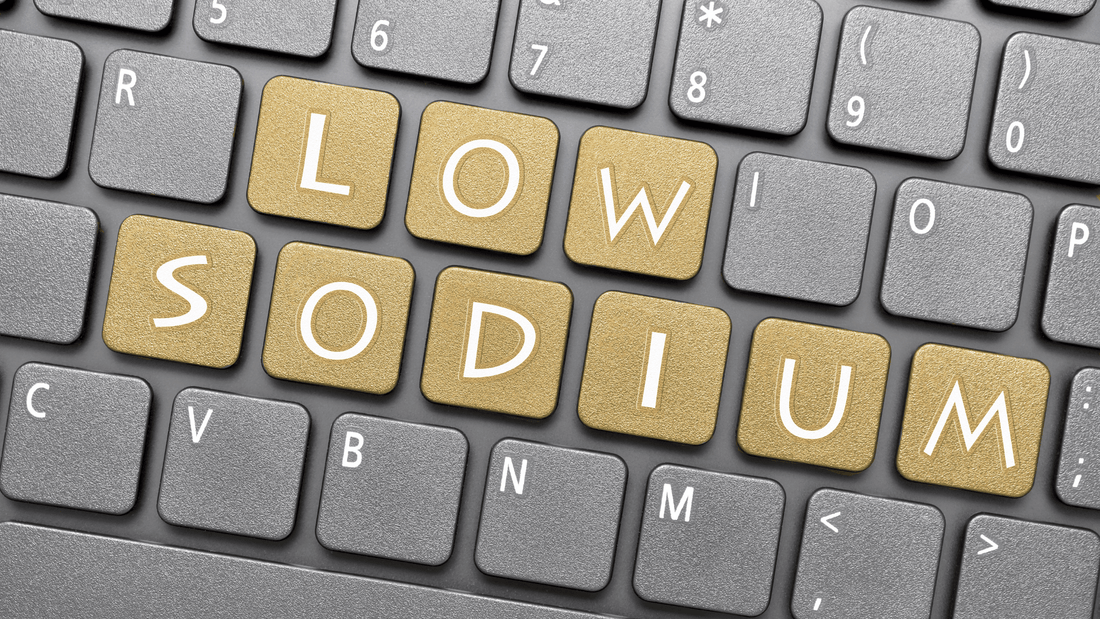
Why and How You Should Adopt a Low Sodium Diet
Naturally YoursShare

What is Low Sodium Diet?
Theoretically, A low Sodium diet restricts high sodium foods and drinks. An individual following such diet is advised against consuming animal-based, prepacked, highly seasoned foods. The positive side to that is they are encouraged to eat fresh produce and plant-based meals to keep their sodium intake under a specific limit.
Reducing the amount of sodium in your diet can:
- Lower blood pressure: The amount of fluid in the blood decreases, leading to lower blood pressure.
- Reduce risk of a heart attack: By managing the blood pressure, you relieve the pressure and potential damage to your heart, which reduces your chance of a heart attack.
- Lower LDL cholesterol: High blood pressure is one of the factors for metabolic syndrome. The metabolic syndrome includes having a high cholesterol reading. Prepacked foods that are high in sodium tend to be high in cholesterol as well.
- Reduces your risk of Kidney Damage: Your blood vessels in the kidney can become weakened and narrowed and can cause kidney failure.
- Prevent you from stroke: The decreased blood flow to your brain can put you at an increased risk for a stroke.
- Protects your vision: High blood pressure in the vessels in your eyes can lead to torn blood vessels and vision loss so incorporate more natural, low-salt foods like a carrot.
- Reduces your risk for diabetes: A diet that is high in packaged foods or convenience foods will increase your chances of having diabetes.
- Improve your memory: The ability of thinking or building memories are related to the health of the brain and high blood pressure can affect blood flow to the brain.
- Lower the risk of dementia: Vascular dementia is a type of dementia-related to slowed blood flow to the brain.
- Reduces bloating and swelling: A diet high in sodium causes your body to retain fluid. When you cut back on the sodium you will be able to notice reduced bloating and swelling.
- Curb your salt craving: Your taste buds adapt to the increased level of saltiness. When you reduce the amount of sodium in your diet, it will help you to decrease your salt cravings.
- Reduces the risk of headache: A meal high in salt can cause the blood vessels in your brain to expand. These pounding blood vessels can be the culprit behind your latest painful headache.
- Build stronger bone: Salt controls how much calcium is pulled out of your bones. Calcium is important for strong bones and to prevent osteoporosis. A high sodium diet can lead to weak bones with loss of calcium
- Allow your heart to pump effectively: High blood pressure caused by a high sodium diet puts stress on your heart walls. The heart can pump easily when your blood pressure is at an ideal level.
- Lower the risk of stomach cancer: There is a bacteria called Helicobacter pylori, that can live in the stomach. It thrives on the high salt content. The bacteria is a major risk factor for stomach cancer.
Know your Sodium Limit:
The general guidelines for sodium intake
- Healthy adults and teens age 14+ needs to limit the sodium intake to not more than 2300mg/day
- For people with high blood pressure limiting sodium intake to 1500mg/day may be helpful
- Children under age 14 need no more than 1500 to 2200 mg/day of sodium depending on their age.
Low sodium foods to enjoy:
- Fresh vegetables: Greens, broccoli, cauliflower, pepper, etc.
- Fresh Fruits: Berries, apple, banana, pears, etc.
- Grains and beans: Dried beans, brown rice, quinoa, bajra, etc.
- Starchy Vegetables: Potato, Sweet potatoes, etc.
- Eggs, fresh meat/fish
- Dairy products: Milk, Yogurt, Unsalted buttermilk and low sodium cheese
- Unsalted Nuts & Seeds: Pumpkin seeds, Almonds, Peanuts, etc.
- Low-sodium seasoning: Garlic powder, no salt blends, herbs & spices
Guidelines for cutting Down on Salt:

- Use fresh fruits and vegetables because they are low in sodium. Canned or frozen fruits are also low in sodium.
- When buying frozen vegetables, choose those that are labeled "fresh frozen" and do not contain added seasoning or sauces.
- Read the nutrition label. Sodium content is always listed on the label. Sometimes the high sugar content in a product like an apple pie masks the high sodium content. So, it is very important to check on every food label.
- Compare various brands of the same food item until you find the one that has the lowest sodium content since this will vary from brand to brand.
- Beware of products that don't taste especially salty but still have high sodium content, such as cottage cheese.
- If you have elevated blood pressure, dietary sodium restriction can not only lower your blood pressure but can enhance your response to blood pressure medications.
- Salt preference is an acquired taste that can be unlearned. It takes about 6-8 weeks to get used to eating food with much lower quantities of salt, but once it's done, it's difficult to eat foods like potato chips because they taste way too salty.
Bottom Line
Low-sodium diet can help you prevent high blood pressure, chronic kidney disease and overall diet quality.
If you follow a low-sodium diet, choose fresh and avoid salty foods. Cooking more meals at home is another way to control salt intake.
ABOUT THE AUTHOR

Anuja Dani, Certified Sports Nutritionist
Founder, Harmony Wellness,M.S.c. Nutrition & Dietetics
Diabetes Educator
@the_harmony_wellness (Instagram)
As a nutritionist, her motto is to simplify food and nutrition to busy people and helping them to achieve their goals. She has successfully counselled clients all over India for disease management, nutritional deficiencies and also gives fitness advice to athletes, fitness enthusiasts, bodybuilders, marathoners & many others. Other than being a nutritionist, Anuja is also a good singer, a foodie, a reader, a designer, and a dreamer.
